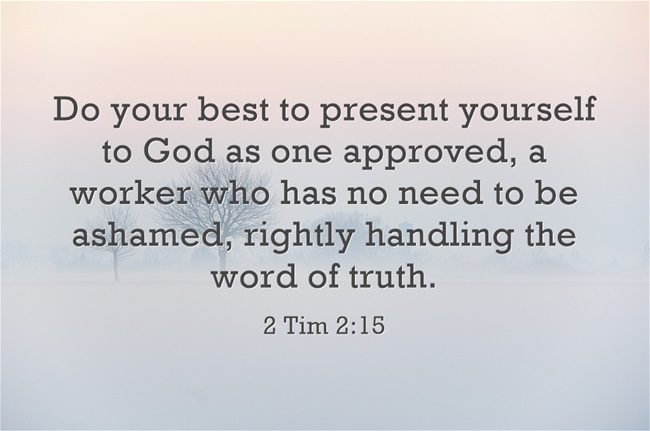Why should a Bible concordance be used? Is a Bible concordance enough for your study of the Bible?
The Need for Study
The Bible clearly tells us that we should study the Bible and this can cause us to grow in the knowledge of God. Second Timothy 2:15 is a command, “Do your best to present yourself to God as one approved, a worker who has no need to be ashamed, rightly handling the word of truth.” We can’t handle the truth rightly if we don’t understand it. The Apostle Peter also commands believers to “grow in the grace and knowledge of our Lord and Savior Jesus Christ” (2nd Pet 3:18a) so study and growth in the Word is not optional. There is no plan “B.” We are simply told to study His Word and a concordance is a very useful tool in helping us to do this but is a Bible concordance enough to help us do this? Is it necessary for us to even use a concordance? Is a Bible concordance enough? What if your Bible doesn’t have one?
Bible Concordances
I have a concordance in the back of my Bible. At times, it serves to give me alternative scriptures for my study of the Word. It shows me other places in the Bible where I can look when preparing a topological study. For example, if I want to study and/or prepare a message on forgiveness, I can look at my concordance and look at all the scriptures that mention forgiveness and see how they all fit together. I can find the underlying theme of forgiveness; how it applies to me; what the conditions of forgiveness are, and how crucial it is for the Christian’s daily walk with Christ. My concordance is nearly as indispensable as my Bible is. If your Bible doesn’t have one, buy one.
A Concordance
There are a lot of online Bible concordances such as Bible Study Tools, Bible Gateway, and Blue Letter Bible. These online concordances can give you every Scripture that you need when you are studying on a particular subject but I prefer to have a hard copy in my library at home. A Bible concordance gives you an alphabetical listing of various subjects that are the mainline essentials in the faith. Strong’s Exhaustive Concordance is an extraordinarily good one. Strong’s is actually the most widely known and most popular of all concordances and includes both Greek and Hebrew dictionaries for a better understanding of the original meaning. It even includes the rare instances of when there is Aramaic in the Scripture. Naves Topical and Torreys Topical concordances are also topline Bible concordances. I suggest that even if you have a concordance in the back of your Bible, it is not comprehensive enough and may omit words you want to seek out and research, therefore a hardcover Bible concordance is a valuable asset to your study of the Word.
A Bible Atlas
My Bible also has maps in the back but a Bible atlas is a cut above that. It is a useful tool when studying the Bible. With it, you can learn more about the geography, the landscape, the distances, and the terrain that the people of the book lived in. It gives you a good idea of just how far some of the missionaries traveled and how far Jesus actually walked during His earthly ministry. A good Bible atlas will embellish your Bible study and can fill in where concordances leave off. A Bible dictionary is also a very useful tool in studying God’s Word.
Conclusion
Studying the Bible can greatly help us to discern truth from error. The more you know the Bible, the more you’ll recognize doctrinal error. Many people take one text and build a belief system around it. That is called “proof texting” and it’s a very dangerous way to build a set of biblical beliefs. As has been said before, taking text out of context makes it a pretext and usually a false one at that. Jesus even ties in the effectiveness of our prayer requests to abiding in His word as He says in John 15:7 “If you abide in Me, and My words abide in you, you will ask what you desire, and it shall be done for you.” Solomon called himself the preacher and he wrote that he “also taught the people knowledge, weighing and studying and arranging many proverbs with great care” (Eccl 12:9). We need to have the desire of Ezra who “had set his heart to study the Law of the Lord, and to do it and to teach his statutes and rules in Israel” (Ezra 7:10). A good concordance can help you do just that and so I highly recommend one.
Article by Jack Wellman
Jack Wellman is Pastor of the Mulvane Brethren church in Mulvane Kansas. Jack is also the Senior Writer at What Christians Want To Know whose mission is to equip, encourage, and energize Christians and to address questions about the believer’s daily walk with God and the Bible. You can follow Jack on Google Plus or check out his book Blind Chance or Intelligent Design available on Amazon.












